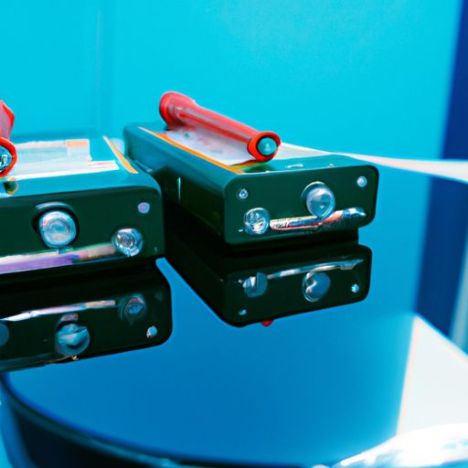Table of Contents
Benefits of Using Lithium Battery Internal Resistance Tester for Battery Capacity Measurement
Lithium Batteries have become increasingly popular in various electronic devices due to their high energy density and long lifespan. However, like all batteries, lithium batteries also have limitations, one of which is internal resistance. Internal resistance is a measure of how much a battery resists the flow of current, which can affect the battery’s performance and overall capacity.
To accurately measure the internal resistance of a lithium battery, a specialized instrument called a lithium battery internal resistance tester is used. One such instrument is the YR1030+, a high-precision tester designed for Nickel-hydrogen, nickel-cadmium, and button batteries. This instrument is essential for accurately measuring the internal resistance of lithium batteries, as it provides precise and reliable results that can help users determine the battery’s capacity and overall health.
One of the key benefits of using a lithium battery internal resistance tester is the ability to accurately measure the battery’s capacity. Internal resistance is directly related to a battery’s capacity, as higher internal resistance can Lead to decreased capacity and reduced performance. By measuring the internal resistance of a lithium battery, users can determine the battery’s capacity and make informed decisions about its usage and replacement.
In addition to measuring capacity, a lithium battery internal resistance tester can also help users identify potential issues with the battery. High internal resistance can indicate a variety of problems, such as overcharging, over-discharging, or physical damage to the battery. By detecting these issues early on, users can take corrective action to prevent further damage and ensure the longevity of the battery.
Furthermore, a lithium battery internal resistance tester can help users optimize the performance of their batteries. By regularly measuring the internal resistance of lithium batteries, users can track changes in capacity and performance over time. This information can be used to identify trends and patterns, allowing users to make adjustments to their charging and usage habits to maximize the battery’s lifespan and efficiency.
Another benefit of using a lithium battery internal resistance tester is the ability to compare different batteries and brands. By measuring the internal resistance of multiple batteries, users can determine which batteries have the highest capacity and best performance. This information can be valuable for businesses and manufacturers looking to select the best batteries for their products or projects.
Overall, a lithium battery internal resistance tester is an essential tool for anyone working with lithium batteries. By accurately measuring the internal resistance of batteries, users can determine capacity, identify potential issues, optimize performance, and compare different batteries. With the YR1030+ high-precision tester, users can ensure the longevity and efficiency of their lithium batteries, making it a valuable investment for any electronic device or project.
Importance of High Precision YR1030+ Instrument for Testing Nickel-Hydrogen, Nickel-Cadmium, and Button Batteries
Lithium Battery Internal Resistance Tester YR1030+ is a high-precision instrument designed for testing the internal resistance of nickel-hydrogen, nickel-cadmium, and button batteries. This instrument plays a crucial role in determining the capacity and performance of these types of batteries, making it an essential tool for manufacturers, researchers, and technicians in the battery industry.
One of the key reasons why the YR1030+ instrument is highly valued in the industry is its ability to provide accurate and reliable measurements of internal resistance. Internal resistance is a critical parameter that directly affects the performance and efficiency of a battery. By accurately measuring the internal resistance of a battery, users can assess its health, capacity, and overall performance. This information is vital for ensuring the quality and reliability of batteries used in various applications, from Consumer Electronics to electric vehicles.
The YR1030+ instrument offers high precision and accuracy in measuring internal resistance, making it a valuable tool for battery testing and quality control. Its advanced technology and design allow for precise and consistent measurements, ensuring reliable results that can be trusted for making informed decisions about battery performance and reliability.

In addition to its high precision, the YR1030+ instrument is also known for its versatility and ease of use. It is compatible with a wide range of battery types, including nickel-hydrogen, nickel-cadmium, and button batteries, making it a versatile tool for testing different types of batteries. Its user-friendly interface and intuitive controls make it easy to operate, even for users with limited technical expertise.
Furthermore, the YR1030+ instrument is designed to be portable and lightweight, making it convenient for on-site testing and field applications. Its compact size and durable construction ensure that it can withstand the rigors of daily use in various environments, from laboratories to production facilities.
Overall, the YR1030+ instrument is an essential tool for anyone involved in the testing and evaluation of nickel-hydrogen, nickel-cadmium, and button batteries. Its high precision, accuracy, versatility, and ease of use make it a valuable asset for ensuring the quality and performance of batteries used in a wide range of applications.
In conclusion, the YR1030+ instrument is a high-precision internal resistance tester that plays a crucial role in testing and evaluating nickel-hydrogen, nickel-cadmium, and button batteries. Its accuracy, precision, versatility, and ease of use make it an essential tool for ensuring the quality and reliability of batteries used in various applications. Whether you are a battery manufacturer, researcher, or technician, the YR1030+ instrument is a valuable asset for testing and evaluating battery performance and capacity.

